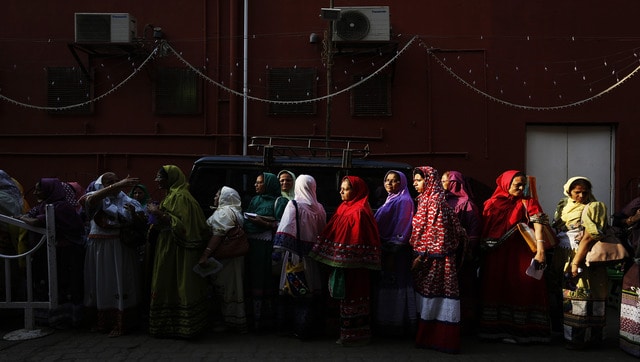The Bombay High Court has ruled there will be no change in the leadership of the Dawoodi Bohra community, paving the way for Syedna Muffadal Saifuddin to remain the spiritual head and dismissing the suit filed by his challenger Syedna Taher Fakhruddin.
The court said on Tuesday (23 April) that it has kept the ruling “as neutral as possible for personalities involved” and has “only decided on the issue of proof”. “I don’t want any upheavals. I have kept the judgment as neutral as possible. I have only decided on the issue of proof and not faith,” a single bench of Justice Gautam Patel was quoted as saying by India Today.
With Tuesday’s judgement, the Bombay High Court settled the suit filed in 2014.
Who are the Dawoodi Bohras? What is the case? Let’s understand.
The Dawoodi Bohras
The Dawoodi Bohras are Shia Muslims, who have traditionally been traders and entrepreneurs. The religious head of the community is known as the Dai-al-Mutlaq, noted Indian Express. The seat of the leader is in Mumbai.
The
Dawoodi Bohras
come from the Mustali sect which originated “in Egypt and later moved its religious centre to Yemen”, as per Encyclopaedia Britannica. The community established its presence in India in the 11th Century.
The population of the Dawoodi Bohras in India is five lakh, while more than 10 lakh live in other parts of the world.
The leader of the Dawoodi Bohras has been based in India for over 400 years, reported Indian Express.
What is the dispute?
In January 2014,
Syedna Mohammad Burhanuddin
, the 52nd leader of the Dawoodi Bohras, died. His son, Mufaddal Saifuddin, succeeded him becoming the 53rd Dai-al-Mutlaq.
However, Khuzaima Qutbuddin, the half-brother of the late Syedna, challenged this in the Bombay High Court in April of that year.
According to Dawoodi Bohra doctrine, “divine inspiration” is taken into consideration while choosing a successor. A “nass” or the conferment of succession can be bestowed on any deserving community member even if they are not family, reported Indian Express. However, it has become a common practice to pick a family member as a successor.
The legal battle
Qutbuddin moved the Bombay High Court in April 2014, seeking to stop the late Syedna’s son from acting as the leader of the Dawoodi Bohra community. He claimed that Burhanuddin, after becoming the Dai-al-Mutlaq in 1965, had appointed him as the mazoon or the second in command, as per the Indian Express report.
Qutbuddin asserted that Syedna Burhanuddin had secretly conferred the ‘nass’ on him before declaring him as the mazoon on 10 December 1965, the report added.
Qutbuddin also said that his half-brother had asked him to keep his nass a secret, saying he followed this oath of secrecy till the death of the 52nd Dai.
He alleged that Saifuddin had taken over the leadership in a “fraudulent manner”. Thus, Qutbuddin sought the court to announce him as the 53rd Dai-al-Mutlaq, according to Indian Express.
However, Qutbuddin died in the United States in 2016. Following this, Qutbuddin’s son, Syedna Taher Fakhruddin, became the plaintiff in the case. He claimed his father conferred the nass on him and he should be declared the 54th Dai, reported India Today.
The defendant, Syedna Mufaddal Saifuddin, argued that the nass of 1965 could not be accepted due to a lack of witnesses. Saifuddin’s lawyers said that as per established doctrines of the Dawoodi Bohra faith, nass could be changed and revoked.
His lawyers told the Bombay High Court that the 52nd Dai had bestowed nass on Syedna Saifuddin in June 2011 at a hospital in London, in the presence of witnesses.
They also questioned Qutbuddin’s “silence” about his claim to the post of the Dai between 2011 and 2014, saying it was done as an “afterthought” after Burhanuddin’s demise, as per Indian Express.
Bombay High Court’s order
Justice Patel concluded the hearing of the legal dispute on 5 April last year and reserved the verdict.
The Dawoodi Bohra community hailed the Bombay High Court’s Tuesday ruling as “historic”. “The judg(e)ment has firmly dealt with and dismissed the misinterpretation and misleading portrayal by the plaintiffs of the facts and the religious doctrines of the Dawoodi Bohra faith,” India Today cited a statement by the Dawoodi Bohra spokesperson as saying.
“We have always believed and have had full faith and conviction in the judiciary, which has time and again affirmed the position of the Syedna and the Dawoodi Bohra community’s age-old beliefs, customs, practices and doctrines,” the statement added.
Anand Desai, a senior advocate representing Fakhruddin, also reacted to the verdict. “Our suit has been dismissed. We will go through the detailed order and decide on appeal,” he said, as per NDTV.
With inputs from agencies
Link to article –
No change in leadership for Dawoodi Bohra community, says HC: The succession dispute explained
